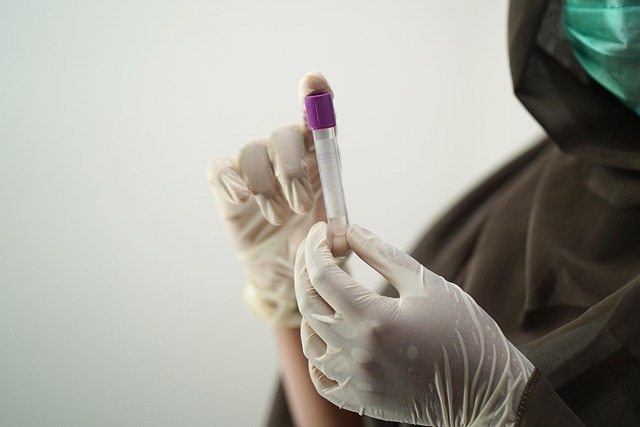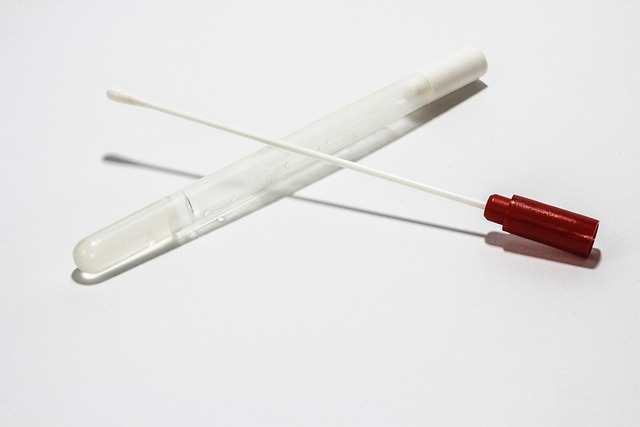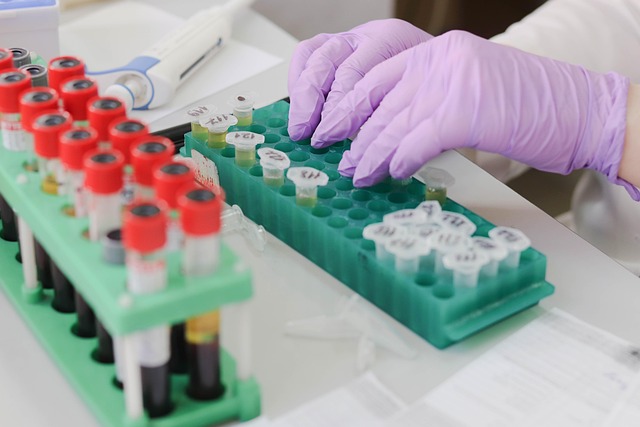Home blood testing kits in the UK offer individuals convenient access to various health assessments, from tracking cholesterol to comprehensive hormone analysis. Regulated by MHRA, these tests provide insights into wellness but may not replace professional medical assessment. With proper use, at-home blood tests empower people to actively manage their health discreetly and without frequent clinic visits.
In today’s digital era, maintaining wellness has never been more accessible. One innovative approach gaining traction is home blood testing kits in the UK. These tools allow individuals to monitor their health discreetly and conveniently from the comfort of their homes. This article explores the growing trend of at-home blood tests, delving into understanding UK offerings, benefits and limitations, and navigating common types for informed decisions about personal wellness.
- Understanding Home Blood Testing Kits in the UK
- Benefits and Limitations of At-Home Blood Tests
- Navigating Common Types of Home Blood Analysis
Understanding Home Blood Testing Kits in the UK

Home blood testing kits have gained popularity in the UK as people seek more control over their wellness and health monitoring. These kits allow individuals to perform various blood tests from the comfort of their homes, eliminating the need for frequent clinic or hospital visits. The market offers a range of options, from basic kits for tracking vital metrics like cholesterol and sugar levels to more complex sets designed for comprehensive health assessments, including hormone balance, vitamin deficiencies, and even early detection of certain diseases.
In the UK, regulation plays a crucial role in ensuring the quality and accuracy of these home testing solutions. The Medicines and Healthcare products Regulatory Agency (MHRA) oversees the approval process for such medical devices, guaranteeing their safety and efficacy. With just a few drops of blood, these kits provide valuable insights into one’s health status, empowering individuals to make informed decisions about their well-being.
Benefits and Limitations of At-Home Blood Tests

At-home blood tests are becoming increasingly popular in the UK, offering individuals a convenient way to monitor their health and wellness. One of the key benefits is accessibility; people can now test for various health markers, such as cholesterol, glucose, or vitamin D levels, from the comfort of their own homes, eliminating the need for frequent clinic visits. This is particularly advantageous for those with busy schedules or individuals living in remote areas who face challenges accessing healthcare services.
However, while at-home blood tests provide ease and convenience, they also have limitations. The accuracy of these tests can be a concern; factors like improper sample collection or storage can lead to inaccurate results. Additionally, certain medical conditions might require further assessment by professionals, as home testing may not replace the need for expert interpretation and follow-up care. Despite these limitations, at-home blood tests represent a significant step towards empowering individuals to take an active role in managing their health.
Navigating Common Types of Home Blood Analysis

Navigating the world of blood testing at home can seem daunting, but with a range of options available in the UK, it’s easier than ever to monitor your wellness. Common types include finger prick tests and whole blood draws using at-home kits. Finger prick tests are quick and convenient, suitable for checking glucose levels or basic health markers like cholesterol and haemoglobin. These tests offer real-time results without the need to visit a clinic.
Whole blood draws, on the other hand, allow for more comprehensive analysis. At-home kits provide a sterile needle and collection tube, enabling you to take a small sample of whole blood from your arm. This method is often used for tracking conditions like diabetes or thyroid disorders over time. Many kits also offer discreet and safe disposal options, ensuring convenience and peace of mind during the process.
Blood testing at home for wellness is a growing trend in the UK, offering convenient access to health insights. While these kits provide numerous benefits, such as privacy and cost-effectiveness, they also come with limitations like reduced diagnostic accuracy compared to professional labs. Understanding different types of home blood analysis tools and their applications can empower individuals to make informed decisions about their health. As home blood testing becomes more accessible, it’s essential to balance the convenience with reliable results, ensuring a holistic approach to wellness.
